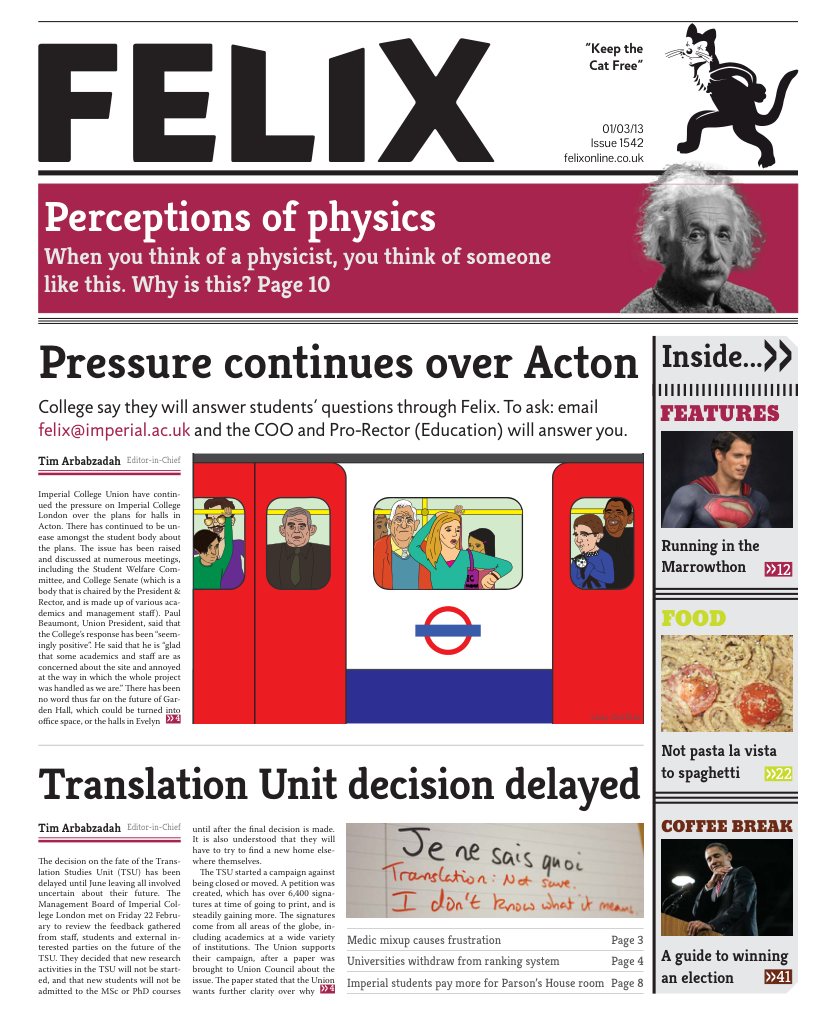Medics in career limbo after marking mixup
Anxious wait for the final years

More than seven thousand final year medics nationwide have been left stunned and unsure of their future following the retraction of allocated Situational Judgement Test (SJT) results. The move, taken by the UK Foundation Programme Office (UKFPO) on 25 February, means that medics must undergo yet another nervous wait to find out which hospital will become their training base.
An official statement published on the UKFPO website justified its actions on the basis of a ‘potential error in the scanning process of the SJT’, requiring the redaction of individual student marks; it is a move that has angered the medical student body who now feel deeply embittered. Many argue that it is a blunder, however unintentional, that is unforgivable, with the students in the midst of tense final examination preparations. The sense of security attributed to their prospective placements after graduation has been removed. Widespread and vitriolic condemnation has been voiced all over the UK. The feeling of many medics was summed up by an anonymous Welsh undergraduate, who debated that, “Revising for finals is stressful enough without any added misery”.
Inevitably this has impacted on the final year medics studying at Imperial College London. Appeals have been made for calm and rationality in an e-mail sent on behalf of Professor Jenny Higham, Director of Education within the Faculty of Medicine, to the student body, urging them to, “remember that the most important thing is to qualify and to do so as well as you can… Imperial College Medical School is determined to support its students; Each and every one of you.” In addition to this she expressed her disappointment at the mistakes made by the UKFPO.
Some say that this disappointment is justifiable, with speculation that the ‘potential error’ rested upon human error. In an article recently published by The Guardian newspaper it was speculated that “errors were caused by ink-stained photocopied sheets that could not be read by the automated marking system”. It has been confirmed that up to twelve hundred scripts will undergo revision by hand. A mounting air of cynicism has been catalysed by these revelations, being particularly vocalised on Twitter. One angry ‘tweet’ read as follows,
“Hilariously #SJT declared great success by #UKFPO boss who I suspect must feel the pain of chicken counting” with another expressing clear and utter dismay by saying “7,000 future doctors are being messed around today. On Monday they had jobs. Today they don’t.”
The above tweets hint at the possible far-reaching consequences of the SJT blunder. These are just two examples of tweets. Many users took to social media, with the hashtag #FPAS being used by many. With the impetus of time pressurising the UKFPO to remedy the crisis people are worried about the objectivity of the impending re-allocation of students, despite repeated reassurances from the organisation. Add to this the repercussions for hospitals where summer and autumn staff quotas were projected on the basis of an influx of medic graduates. The situation is currently under surveillance by the British Medical Association. Alice Rutter, co-chair of the BMA Student Committee, voiced their stance: “We view this problem very seriously indeed and will be taking action to ensure students who are affected are kept updated”. The Department of Health issued a terse response, stating that the incident “should not have happened.”
Dr Katie Petty-Saphon, Executive Director of the Medical Schools Council, and the person responsible for commissioning the suppliers that introduced the errors, released a statement apologising “unreservedly to all applicants” for the incident. She said that she understands “how upsetting and frustrating it must be to be told that you have a particular position one day – and then to be warned the next that this might not be the case”. She went on to say, “Despite extensive piloting of the test and marking processes on several occasions, an unforeseeable and previously unrevealed issue came up when the papers from the live test were scanned for us. It is with deep regret that this error only came to light after the allocation was released. This was in part thanks to close liaison with Medical Schools.
Having discovered that a small number of you had been disadvantaged by the scanning error it would simply not have been correct knowingly to allow the process to stand. Let me reiterate my apologies – we shall provide the UKFPO with the results as soon as we are completely confident that we have done all we can to ensure their accuracy.








